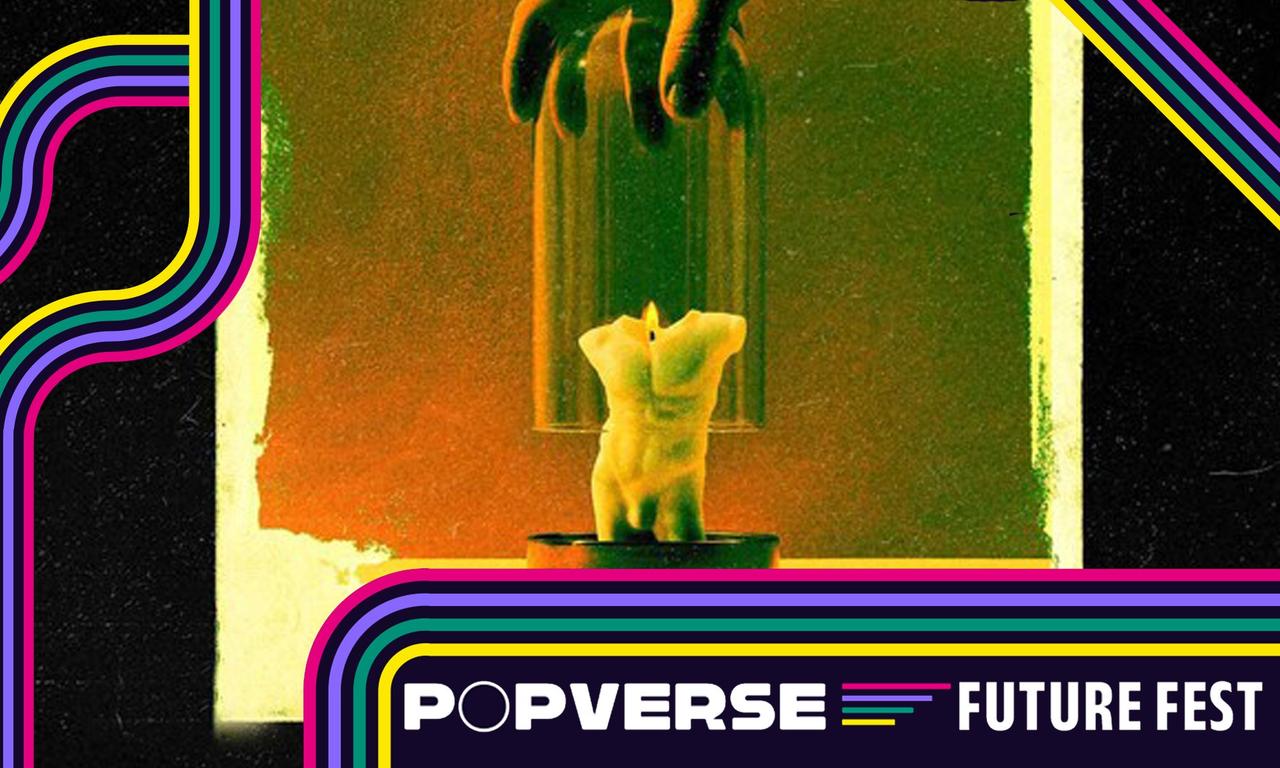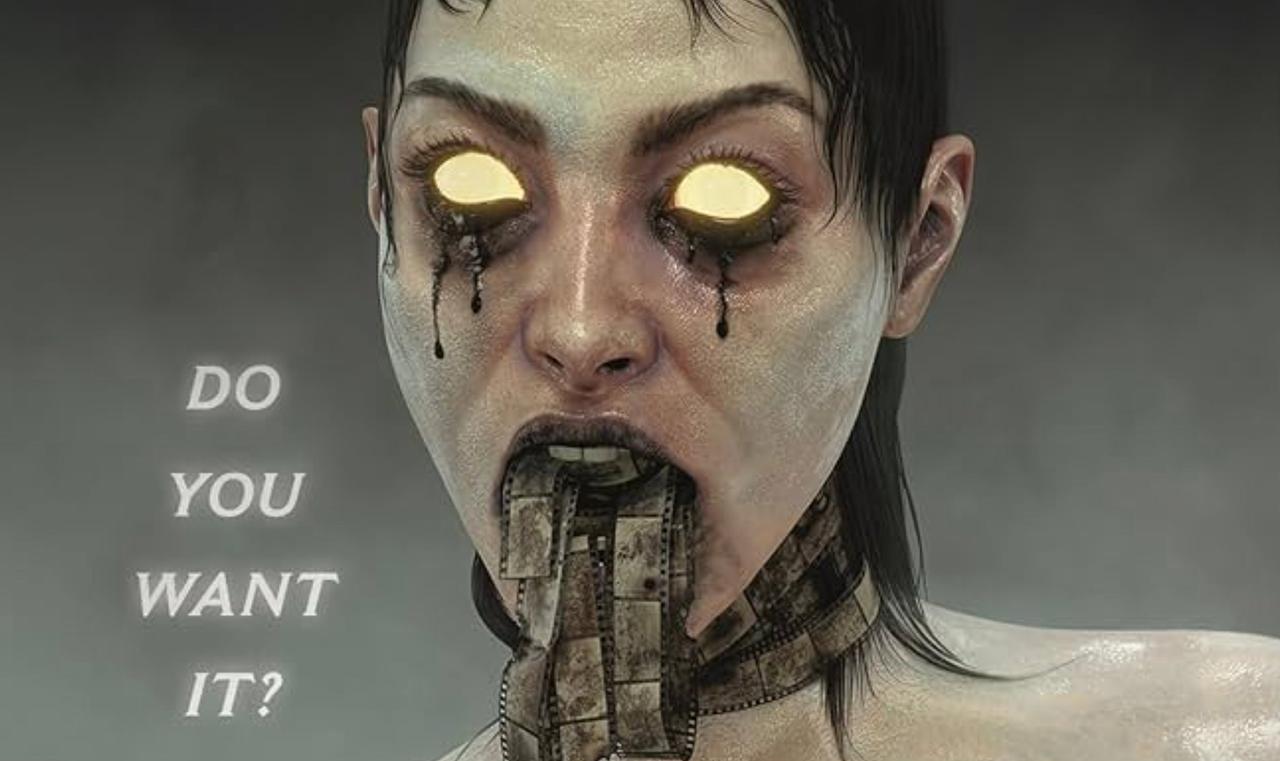If you click on a link and make a purchase we may receive a small commission. Read our editorial policy.
[Future Fest] The future of horror novels lies in unlikeable queer characters
Books like Black Flame by Gretchen Felker-Martin and Wretch by Eric LaRocca are part of a larger vibe shift in horror lit

Popverse's top stories
- DC Comics sends Absolute Batman, Absolute Wonder Woman, and the entire Absolute Universe back to press for a massive March rollout
- Creel World Seattle: Stranger Things' Jamie Campbell Bower is coming to ECCC 2026!
- Members only: Ask Ming-Na Wen, Critical Role, Gail Simone, Karl Urban, Chris Claremont, Denys Cowan, and more your questions as part of ECCC x Popverse member exclusive!
The past five years have been a rollercoaster for the LGBTQIA+ community in the United States, to say the least. While there have been some enormous wins for us, particularly within the realm of comics, we've also had to fight book bans and other attacks on the right to read. In the midst of all of this, it isn't surprising that likeable queer characters have proliferated in recent years. Right now, Jon Kent in DC Comics proudly wears the House of El sigil as a member of Secret Six, written by Nicole Maines, and writer Stephanie Williams developed the loving relationship that Wonder Woman's sister, Nubia, has with her partner, Io, in Nubia and the Amazons. And how could I leave out Jules Jourdain, also known as Circuit Breaker, a character created by A.L. Kaplan who makes me say, "Oh shit that's me!" every time I see him.
But anyways, I'm not here to talk about the past, because it's Future Fest! As Popverse's Resident Book Man, I live a few months into the future because I am constantly reading review copies of books that haven't come out yet. Don't get me wrong, this is the opposite of a problem. Given what I have read and what I've noticed about genre publishing trends lately, I'm here to say that horror lit is set to expand in the near future with books featuring unlikeable queer characters.
Black Flame by Gretchen Felker-Martin explores queerness within transgressiveness.

Take, for instance, Black Flame by Gretchen Felker-Martin. It came out in early August, and it's billed as a story set in '70s New York City where the placidity of a mousey film archivist's life is torn apart as she restores a Nazi exploitation film. Black Flame centers on a woman named Ellen Kramer whose passivity and repression elicit a sense of frustration from the reader. Like Felker-Martin's other work, Black Flame delves into the nastiness of being, of inhabiting a body that feels, excretes, desires, and so much more. It's a book that isn't interested in providing a 'wholesome' look at queer relationships or queer people. Rather, Felker-Martin's writing suggests that she wants to explore the transgressiveness of queerness, evidenced in the extremity of the situations that Ellen finds herself in and the relationships that she longs for.
Felker-Martin's Black Flame isn't a book you'd expect to see featured in a celebrity book club, because not every reader has the patience or willingness to hang out with an unlikeable main character for a couple hundred pages. But given how Felker-Martin has built up an audience from her previous books like Cuckoo and Manhunt, there is a clear hunger for queer stories that aren't hagiographic. Overall, Black Flame isn't interested in playing a game of palatability. In fact, it leaves space for finding pleasure within the abject.
Wretch by Eric LaRocca brings a sense of humanity through its flawed protagonist

Likewise, Eric LaRocca's novel Wretch is also interested in transgression, but LaRocca takes a much different approach. Wretch tells the story of a man named Simeon Link (yes) who, despite his name, comes across as deeply human in all of his contradictions. Simeon is grieving the loss of his husband to a terminal illness while also flagellating himself for his shortcomings as a father to the teenage son he shares with his ex-wife. One day, Simeon comes upon a group of people who believe that they can capture the likeness of their deceased loved ones in everyday objects through photography and a carefully trained eye, leading him to reflect on his relationship with his late husband and his own inner darkness.
With Wretch, LaRocca creates a queer character who narrates their glaring flaws to us with practically no filter. If there was anyone who has ever needed a solid friend group, it is Simeon Link. As he grieves his husband and neglects his duties as a father, I wanted to jump inside the book and shake him by the shoulders until he worked everything out. Though Simeon obviously loved his husband, he's also got a tremendous amount of internalized homophobia and biphobia that LaRocca doesn't shy away from examining. And as a narrative, it works because LaRocca trusts their audience to recognize the harmful patterns of thinking that Simeon traps himself in as part of his character flaws. And for all of the tragedy that Simeon experiences in Wretch, it never feels gratuitous or out of pocket like literally everything that happens in Hanya Yanagihara's A Little Life, which The Atlantic once dubbed "The Great Gay Novel" (please god, no). Wretch is provocative because of the lengths that it goes to illustrate how we can be our own worst enemies sometimes.
Between Black Flame and Wretch, we are at a clear point in time where both publishers and authors trust readers to not get their hackles raised just because a queer character is a flawed human being. The light cannot exist without the darkness, and the same applies to queer stories. Obviously, this isn't an exact 1:1 comparison, but Scorsese's Goodfellas would be horrifically boring if he was worried about representing Italian Americans and Irish Americans in a "bad" light. Graphic novelist Tillie Walden told me earlier this year in an interview that at this point in her career, she is "craving complexity" when it comes to the queer characters she writes, and I think this can also be applied to queer horror books like Black Flame and Wretch.
Good art invites us to think. Facilitating nuance within queer representation in horror feels relevant in today's world, where narratives about who "we are" run rampant in right-wing media. The LGBTQIA+ community isn't a monolith, and the last thing I would want to see is for our community to be represented as such on the page.
Wretch by Eric LaRocca will be released wherever books are sold on March 24, 2026.
Just like yourself, the Popverse staff spends a whole lot of time with our respective noses in respective books. It's why we've come up with stuff like:
- The hottest upcoming fiction
- Queer romance to add to your reading list
- A genre fiction literary column called If It Bleeds, We Read
...and a whole lot more. Join our metaphorical library, won't you? There are no late fees and you can be as loud as you want, so long as the people you live with are OK with it.
Follow Popverse for upcoming event coverage and news
Find out how we conduct our review by reading our review policy
Let Popverse be your tour guide through the wilderness of pop culture
Sign in and let us help you find your new favorite thing.
















Comments
Want to join the discussion? Please activate your account first.
Visit Reedpop ID if you need to resend the confirmation email.